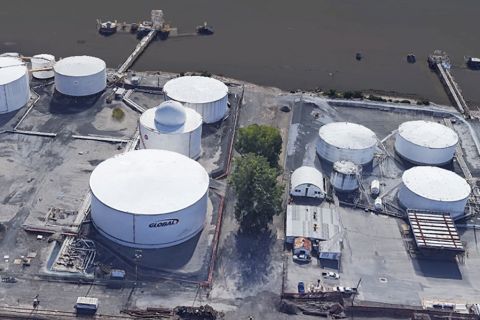Learn more about Hart Energy Conferences
Get our latest conference schedules, updates and insights straight to your inbox.
Across several states, legislatures are considering bills that would impose state government rules on the midstream. The Gas Processors Association (GPA) has kept a close eye on that activity and recently submitted comments to the Pennsylvania Department of Environmental Protection (DEP) on a draft report prepared by the state’s Pipeline Infrastructure Task Force (PITF) that is expected to be finalized this month.
The task force was created last May by Gov. Tom Wolf to address future pipeline infrastructure construction needed to accommodate the transportation of natural gas and related products from the increased production within the state. GPA is strongly concerned that the PITF is providing recommendations for how all pipelines will be built in Pennsylvania, which has the potential to create regulatory uncertainty for midstream operators, as well as an unnecessary and duplicative set of regulations.
The goal of the PITF was to hold meetings among a group of selected stakeholders to review best management practices and prepare a report to Wolf by this month. GPA submitted an application to participate on the PITF but was not selected.
The PITF included 12 working groups, several of which had little—if any—representation from the midstream industry. As an association representing the midstream business, with member companies intimately involved in the buildout of midstream operations in Pennsylvania, GPA believes the process was fatally fl awed due to the lack of representation of midstream companies in key working groups. We also believe it was fl awed due to the inability to modify recommendations once they reached the full task force.
We further believe the task force should have more thoroughly examined the current state and federal laws on the books with which midstream operators are required to comply.
A review of the commonwealth’s laws and regulations would show that Pennsylvania’s regulatory structure is among the most rigorous in the nation. Failing to take into account the regulatory efforts already on the books, or being developed, can only lead to duplicative efforts and regulatory uncertainty.
As an example, GPA believes a number of the task force recommendations call for new requirements for pipeline safety that exceed federal requirements and conflict with Pennsylvania’s Gas and Hazardous Liquids Pipeline Act, which prohibits the commonwealth’s requirements for pipeline safety from being inconsistent with or greater or more stringent than the minimum standards and regulations adopted under the federal pipeline safety laws. These recommendations fail to consider the federal government’s pending activity in reviewing pipeline safety standards for hazardous liquid and natural gas pipelines.
While the PITF was intended to identify best practices that would allow for a collaborative and transparent process between industry and the public, it failed to recognize the primary role of Pennsylvania citizens who are property owners in the siting and location of pipelines.
GPA’s member companies have a track record of successful partnering with landowners to reach agreement on locations, installation and reclamation of property from construction. The multitude of PITF recommendations that would seek to impose numerous requirements on pipeline operators regarding planning, right-of-way location, public engagement, co-location and more should be deleted or significantly modified to recognize the role of landowners in these matters and the cooperative relationships of the midstream companies. As written in the draft report, all these recommendations do is delay and overly complicate the building of infrastructure.
Recommendations to make pipeline mapping data public could potentially risk the security of GPA member companies’ infrastructure. For commercial, security and environmental protection reasons, operators generally cannot share maps with the public. Operators can and do share line location information with One Call organizations and appropriate emergency management officials for safety and security purposes.
GPA recognizes the work being done by the task force and the DEP but the draft report shows a lack of understanding of the pipeline industry, as well as the public policy environment in which it operates. If implemented, these recommendations will hinder development of the midstream industry and, in turn, hinder the development of the vast shale gas resources in Pennsylvania.
Recommended Reading
Mexico Pacific Appoints New CEO Bairstow
2024-04-15 - Sarah Bairstow joined Mexico Pacific Ltd. in 2019 and is assuming the CEO role following Ivan Van der Walt’s resignation.
Global Partners Declares Cash Distribution for Series B Preferred Units
2024-04-15 - Global Partners LP announced a quarterly cash dividend on its 9.5% fixed-rate Series B preferred units
W&T Offshore Adds John D. Buchanan to Board
2024-04-12 - W&T Offshore’s appointment of John D. Buchanan brings the number of company directors to six.
73-year Wildcatter Herbert Hunt, 95, Passes Away
2024-04-12 - Industry leader Herbert Hunt was instrumental in dual-lateral development, opening the North Sea to oil and gas development and discovering Libya’s Sarir Field.
Riley Permian Announces Quarterly Dividend
2024-04-11 - Riley Exploration Permian’s dividend is payable May 9 to stockholders of record by April 25.





